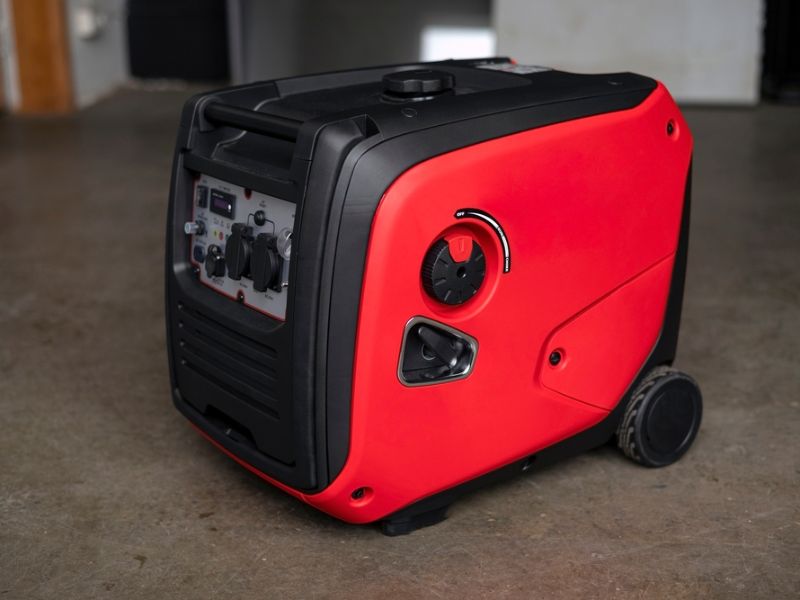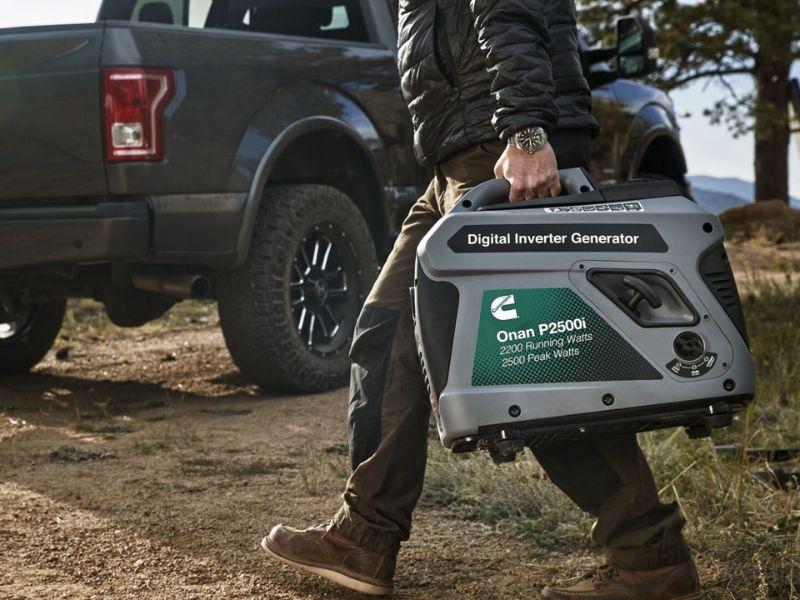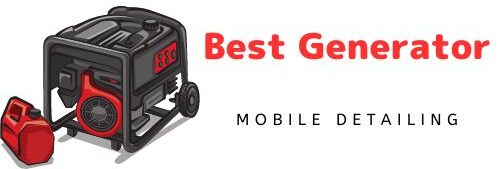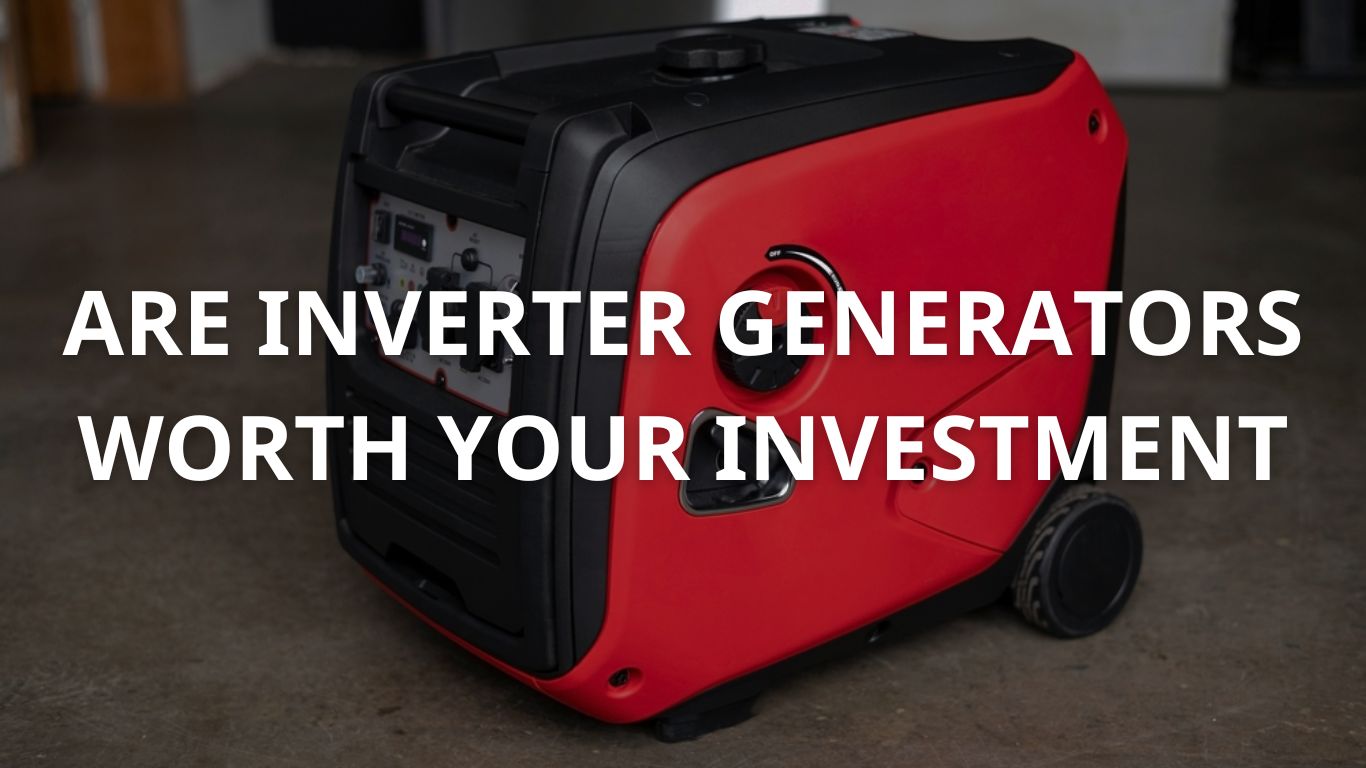When it comes to investing in a generator for mobile detailing, you’re probably wondering, “Is an inverter generator really worth the higher cost?” As someone who has worked in this field, I’ve faced the same question. Reading this article compiled from Best Generator for Mobile Detailing to learn more about the pros and cons of inverter generators and determine if this is the best fit for your mobile business. The answer depends on your specific needs, but let’s start by diving into what makes these generators different from traditional models.
What Is an Inverter Generator and How Does It Work?
At the heart of every inverter generator lies a key difference: the way it produces electricity. Unlike traditional generators, which rely on a constant RPM to generate alternating current (AC), inverter generators first create direct current (DC) and then convert it into AC using advanced electronic circuits. This may sound technical but think of it like a finely tuned irrigation system—smooth and consistent, without the spikes or drops in flow that you might find in older systems.

This process ensures a cleaner, more stable power output, making inverter generators the ideal choice for sensitive electronics, such as the equipment often used in mobile detailing. For example, many modern pressure washers and polishers contain delicate circuits that can be easily damaged by surges in power. The inverter generator, with its smooth and steady electricity, safeguards these devices, increasing their lifespan and reliability.
In addition to stability, inverter generators are significantly more fuel-efficient. By adjusting their engine speed according to the power demand, they use only as much fuel as necessary, which leads to reduced fuel consumption and extended run times. This adaptability is critical for mobile professionals who need power for long detailing sessions without constantly refueling.
Pros and Cons of Inverter Generators
Here’s a breakdown of the pros and cons of inverter generators:
Advantages of Inverter Generators
When it comes to mobile detailing, I’ve learned that having the right equipment can make or break your business. One of the most significant investments I made was switching to an inverter generator. But what makes it stand out compared to traditional options?
Fuel Efficiency
Imagine a finely tuned engine that provides just the right amount of power for your needs without wasting energy. That’s exactly how an inverter generator operates. It adjusts its engine speed based on the power demand, ensuring you’re not burning through fuel unnecessarily. This isn’t just a small improvement—it can make a big difference over a long workday. I used to refuel constantly, but now I get more hours from every tank, which means more time spent working and less time at the pump.
Portability
Let’s face it: mobile detailing is all about flexibility. You need to be able to move your equipment easily from one location to another. Traditional generators are bulky, heavy, and often cumbersome to transport. In contrast, inverter generators are compact and lightweight. I can load mine into the back of my van with minimal effort. It’s like the difference between carrying a full toolbox versus a neatly organized set of essential tools. The portability factor alone makes the inverter generatorit a game-changer for my day-to-day operations.

Quiet Operation
I can’t stress enough how important quiet operation is. Picture trying to detail a car in a quiet neighborhood, and all your customers hear is the loud hum of a generator in the background. Not a great impression, right? With an inverter generator, it’s like the difference between a whisper and a shout. This quieter operation allows me to work in residential areas without disturbing anyone, making it ideal for early morning or late evening jobs.
Clean Power for Sensitive Equipment
Here’s where inverter generators really shine: the clean, stable power they deliver. Much like how a water purifier ensures that what you drink is free from impurities, an inverter generator ensures that your sensitive electronics, like pressure washers or polishers, receive steady, uninterrupted power. Traditional generators often produce power surges, which can wear down or even damage your equipment over time. I’ve noticed far fewer issues with my tools since making the switch, and that alone has saved me from costly repairs.
Disadvantages of Inverter Generators
While inverter generators have many advantages, it’s essential to recognize their limitations before making an investment. Like any high-end tool, they come with some trade-offs that you’ll want to weigh carefully.
Cost
One of the biggest factors that may give you pause is the price. Think of it like investing in premium equipment. Sure, it’s going to hit your wallet harder upfront, but much like high-end detailing tools, it can pay off in the long run with increased efficiency and durability. However, not everyone can justify the higher initial cost, especially if you’re starting a mobile detailing business on a tight budget. I struggled with this decision myself, wondering if the extra expense was truly necessary. However, after experiencing the fuel savings and longer equipment lifespan, I realized it was worth every penny.
Power Limits
Inverter generators tend to produce less power than traditional models. It’s a bit like carrying a lighter load—perfect for some jobs, but not suited for heavy lifting. If you’re running only a few tools at a time, like a pressure washer and a vacuum, the power capacity will be more than enough. But if your work requires powering multiple high-wattage tools simultaneously, you might find that the generator just can’t keep up. I’ve had to carefully plan my tool usage to avoid overloading the system, which can be a minor inconvenience, depending on the job.
Maintenance Requirements
Another thing to consider is maintenance. Inverter generators, with their advanced technology, require more attention than traditional models. It’s a lot like maintaining a high-performance vehicle—it needs regular tune-ups to keep running smoothly. The electronic components that provide stable, clean power need periodic checks, and while they don’t break down often, when they do, the repairs can be more complex and expensive. For someone like me, who’s in the field day after day, this means setting aside time for upkeep to ensure everything works perfectly when I need it.
Is an Inverter Generator the Right Choice for Your Mobile Detailing Business?
The answer depends on a few critical factors. Here’s a creative breakdown to help you decide:
Power Needs
- Smaller Equipment: For tools like pressure washers and vacuums, an inverter generator typically delivers ample power.
- High-Wattage Devices: If your setup requires multiple high-wattage devices running simultaneously, the generator’s power limits might be a concern.
Portability
- Easy Transport: An inverter generator’s compact design is a game-changer, especially when moving between job sites or working in tight urban spaces.
- Stationary Operations: If your business is more stationary or uses heavy-duty equipment, a traditional generator may provide more power, albeit with less mobility.
Noise Levels
- Residential Areas: Working in neighborhoods where noise matters? Inverter generators are your ally, offering quiet operation that respects your clients and their neighbors.
Conclusion
When deciding whether an inverter generator is the right choice for your mobile detailing business, it’s essential to weigh both the pros and cons based on your specific needs. As the article from The Best Generator for Mobile Detailing highlights, while inverter generators offer benefits like quiet operation, portability, and clean power, they do come with a higher price tag and limited power output.
The question you need to ask yourself is: What’s the most important factor for your business? Understanding this will help you make the right decision. For me, the investment was worth it because it allowed me to work efficiently without disturbing clients or risking damage to my equipment. The long-term savings in fuel and maintenance have easily justified the initial cost.
Frequently Asked Questions
What is the difference between an inverter generator and a regular generator?
Inverter generators produce DC power, which is converted to AC using advanced electronics, resulting in cleaner, more stable power compared to traditional generators. They are also more fuel-efficient and ideal for sensitive electronics.
Can an inverter generator power a pressure washer used in mobile detailing?
Absolutely. I’ve used my inverter generator for pressure washers without issues. Just ensure the generator’s wattage meets the washer’s requirements, and it’ll run smoothly.
How long can an inverter generator run continuously?
Run time depends on the model and load, ranging from 8 to 16 hours on a full tank. For mobile detailing, this is usually enough for a full day’s work.
Is an inverter generator safe to use with sensitive detailing equipment?
Yes. Inverter generators provide clean, stable power, making them safer for sensitive electronics like polishers and mobile payment systems by preventing power surges common with traditional generators.
Marion Woods is an accomplished generator technology expert with over 15 years of experience, currently serving as the Chief Technology Officer at GenTech Power Solutions. She holds a Master’s degree from MIT and specializes in enhancing generator efficiency and integrating renewable energy sources. Marion is a respected author and speaker in the engineering community, dedicated to pioneering sustainable power solutions.


1 thought on “Pros And Cons Of Inverter Generators: Are They Worth Your Investment?”